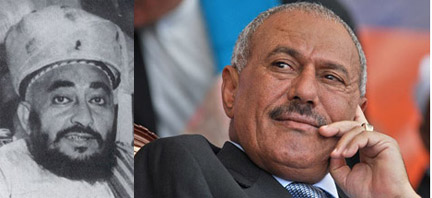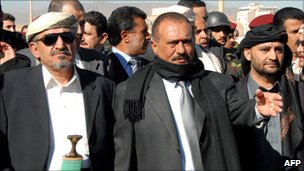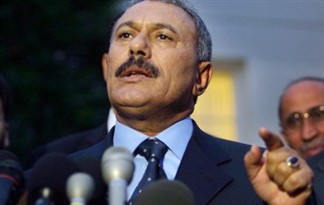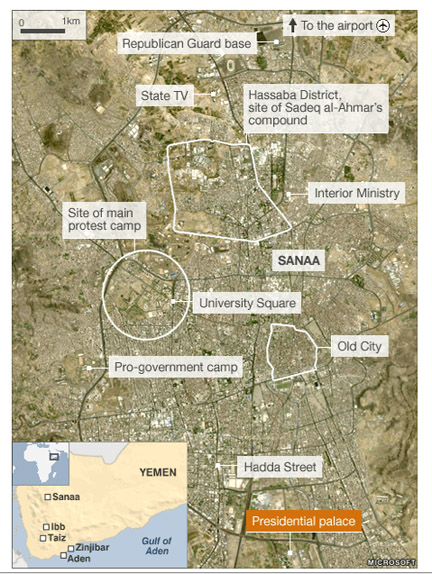
Imam Ahmad, left; Ali Abdullah Salih, right
[Webshaykh’s Note: This is a nice summary of the situation in Yemen just before Salih was wounded and left for Saudi Arabia.]
An avoidable civil war in Yemen that has already begun
by Brian O’Neill, The National, June 5, 2011
The scenes coming to us out of Yemen appear as raw and bloody chaos: running gun-battles through the streets, protesters screaming fiercely and the president, Ali Abdullah Saleh, apparently wounded in a mortar attack at the weekend (and rumoured to be headed to Saudi Arabia for treatment).
But while it looks like madness, the falling apart of Yemen is deeply rooted in the inexorable logic of its own history, the personalities of the major players and a looming generational shift. While civil war is not inevitable, circumstances have made it likely, and it may be too late to prevent the country from violently tearing apart its own seams.
Probably the biggest question swirling around the fighting is why? Not why is President Saleh clinging to power, but why has he established a series of feints and dodges that would appear to propel unrest rather than restore stability?
For instance, why did the president offer to sign a GCC-sponsored transfer of power, only to back away multiple times? If he had no intention of signing, why even bother with the pretence?
The answer to these questions is one of the keys to understanding why Yemen is where it is.
Mr Saleh has ruled parts or all of Yemen for over 30 years. But even the “all” in that sentence is misleading. Mr Saleh has never ruled all of Yemen, even if he has arguably the longest reach in his country’s ancient history. Yemen is governed by negotiation and appeasement, by the carrot and the stick, by squeezing one party while massaging the other.
Rule in Yemen is very personal; the president, like the Imam before him, is intimately involved in tribal politics – a game of swirling alliances. Continue reading Is it civil war yet in Yemen?





